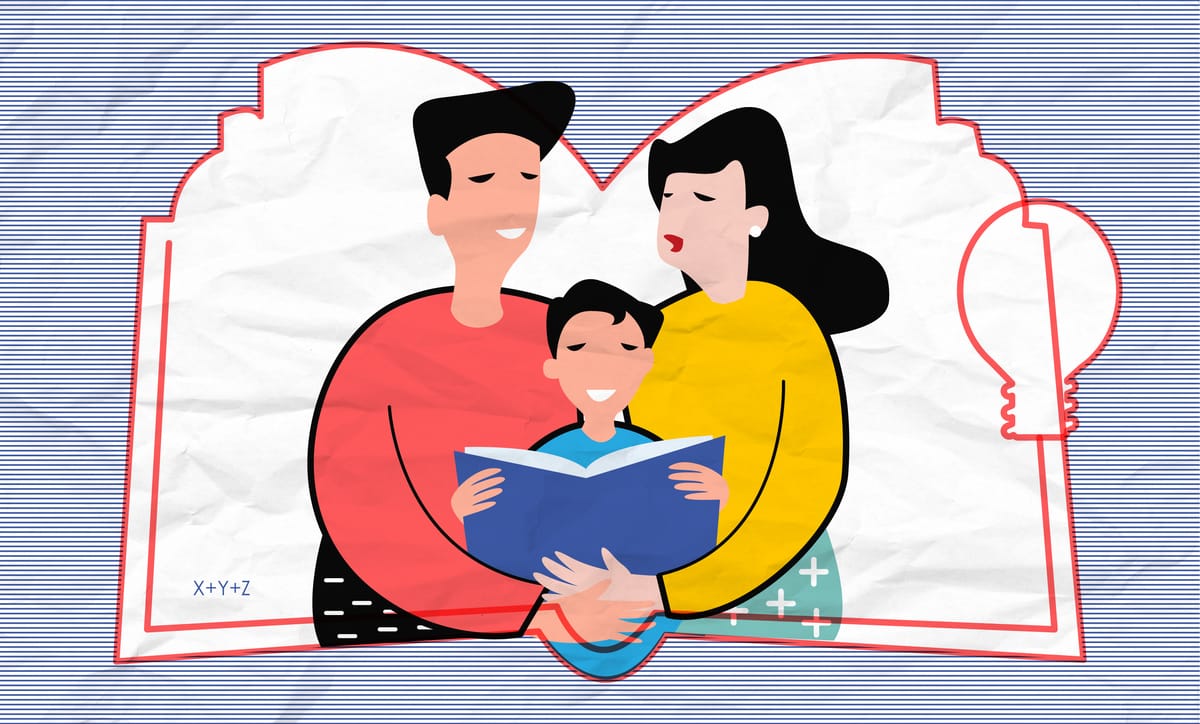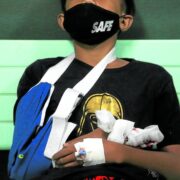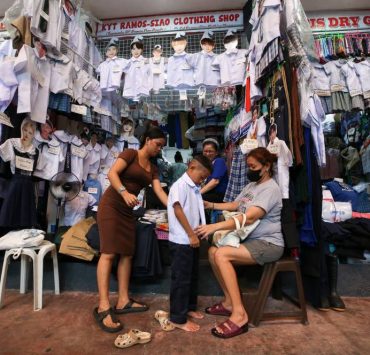Anything but Chinese

I bitterly take my seat at the dining table for 18, for the families of three siblings united by their shared descent. I look at the Peking duck placed on the turning table of the Chinese restaurant and salivate. But I stay put because it is not my place to get first. It is not my place to get much either. It is only my place to ogle the food to myself until everyone else gets their portion, for it would be shameful to my parents if I turn the dish in my direction.
And so I wait.
Sometimes I snag a piece with my chopsticks if my seat happens to be passed when the turning table heads to one of my aunts or uncles; I have gotten better at my speed and reaction time, I realize. Otherwise, I remain poised and well-mannered to silently tell my relatives and cousins that my mother raised me well.
Finally, it gets to me. I take one piece of the cold, thin pancake wrapper served in its wooden steamer, one slice of duck from its once fanned-out presentation, and a small drizzle of hoisin sauce. Then it goes to the next grandchild or whichever adult wants to get more—the latter always takes priority—until there is only one piece of duck left on the large platter. But I don’t take it, and neither does my sister who sits to my right, or my mother who sits to my left. It is rude and inappropriate to take the last piece of a dish, even when you are incessantly told to go ahead and that it is all right. It is never all right. It will never be all right.
This is the culture of my ancestors, the one that transcends space and time by remaining unchanging despite the landscape of the Philippines. Yet, this is only one example of the unsaid rules, the forced expectations, and the false images I must follow at family reunions. I could endure it, I once believed, because it was only four hours, on average, of watching adults boast and gossip in their falsely friendly voices while celebrating special occasions like a grandparent’s birthday or Chinese holidays.
But when I leave those dinners and try to leave my Chinese customs behind with them, I am reminded that I cannot run away from either. I still have Chinese blood in my veins, and I am still Chinese.
Though sure, I am by no means attacked for my facial features, or spit on for my inability to speak the language of “my people.” I am the butt of jokes when the kids around me pull their eyes back and imitate the “ching-chong” sound associated with Chinese, taught by the adults around us that it is perfectly normal. And that’s the thing I hate most—the normalcy of all this.
It is normal to be an extension of your parents’ worth. It is normal to compromise being a child because it is disrespectful otherwise. It is normal to dread going to any family meetups because you’re not going to be able to eat much, if at all, depending on if your grandmother calls you fat despite language barriers. It is normal to hate your cousins because they are the more perfect Chinese child. It is normal to not complain about any of this because my eyes are small and people think my pockets are overflowing.
Yet, it is not normal to want to detach myself from my heritage. It’s impossible to do so in the first place with a Chinese face, a Chinese name, and Chinese habits. I am Chinese. But I am not Chinese.
I cannot listen to the “Respect your elders” talk without scoffing at the hypocrisy of its one-sidedness. I cannot hold back blowing up at my parents for the culture they have forced upon me to endure; some days I really hate them for it, too. I cannot sit still while the turning table spins along, bringing with it my only salvation to my childish satiation.
Most importantly though, I cannot continue patching up my mask to continue the facade. I thought I deluded myself into appreciating my culture, into finding joy in learning the language and eating its delicacies outside of large family gatherings where I wouldn’t be pressured to maintain an idealist image of pristine. But that’s the thing—I cannot have one without the other.
And when I sit at that dining table to celebrate the Chinese New Year, my hate for myself and my bloodline resurfaces. A table cloth being pulled, causing all the tableware laid on it to shatter and cut the skin of those who couldn’t run away in time.
I am three, then seven, then 12, and now 16, and nothing has changed except the fortification of my bravado, the improvement of my emotional repression skills (until they threaten to turn me into a heartless monster who wants nothing more than to hurl my ancestors into a glass wall), and the strength of my wishes to be anything but Chinese.
Kirsten “Nica” Sy, 16, is a senior high school student who believes in questioning the status quo.

















